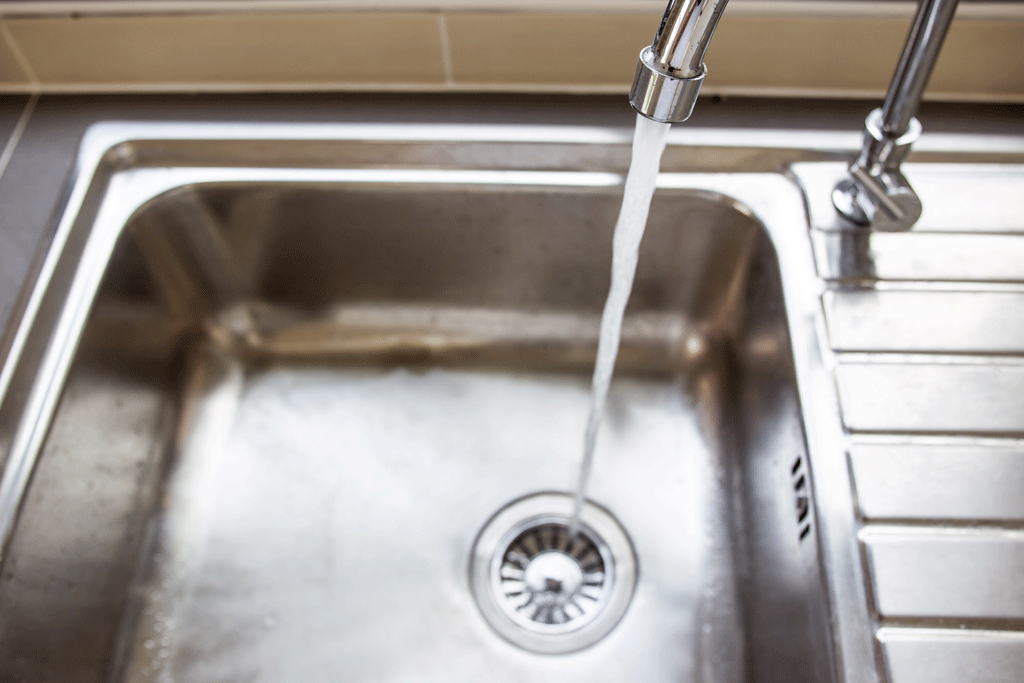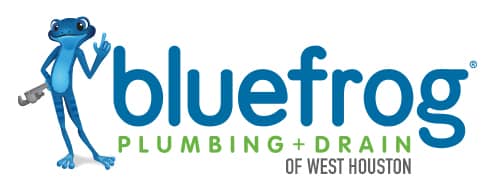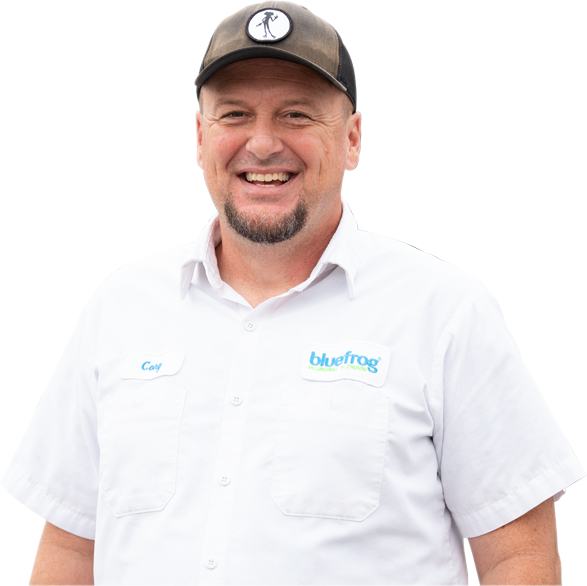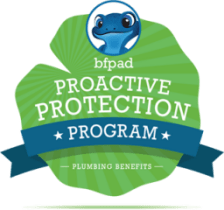
Choosing The Best Water Softener For Your Home
A water softener takes out calcium and magnesium from hard water, making it kinder to your plumbing. To pick the best one for your home, you need to know the different types, figure out what you need, and keep up with maintenance. The right water softeners can make your appliances last longer and improve your water quality.
What are Water Softeners?
Have you ever wondered why these systems are important for your home?
In places like Sugar Land, TX, the perks are clear.
They remove calcium, magnesium, and other metal ions in hard water.
This makes a big difference.
You use less soap when you clean, and your plumbing lasts longer by stopping scale build-up in pipes and fittings.
The way it works is pretty cool.
Most devices use a resin that swaps hardness ions like Ca2+ and Mg2+ with sodium ions.
This makes your water soft.
If you’re worried about sodium intake, a reverse osmosis system can remove sodium and other stuff, making it safe to drink and cook with.
You can also use potassium chloride as a sodium-free option.
In Sugar Land, the water quality impacts your appliances and pipes.
Imagine your dishwasher and washing machine working better and lasting longer.
Investing in good solutions is not just about saving your appliances; it’s about giving you and your family a better quality of life.
Types of Water Conditioners
When picking a system to treat hard water, you need to know the types.
The most common is the salt-based system.
It uses an ion-exchange process where calcium and magnesium (hardness ions) are swapped for sodium.
This reduces scale build-up and softens the water.
But, if you are on a low-sodium diet, check with a doctor first.
Next is the salt-free system.
It doesn’t remove hardness minerals.
Instead, it conditions them, so they don’t stick to surfaces.
These need less upkeep and are eco-friendly, but they aren’t great for very hard water.
Then there are electronic descalers.
They use electromagnetic waves to change the structure of hardness minerals, stopping them from forming scale.
They are easy to set up and maintain but might not work in all cases.
Choosing the right water softener for your home in Sugar Land, TX, depends on your needs, water hardness, and diet.
Trust bluefrog Plumbing + Drain of West Houston, TX to help you find the best solution to extend your plumbing’s life.
Each type has its benefits, so know what your house needs before deciding.
How to Determine Your Water Softener Needs
Wondering how to pick the right water softener for your home?
Here are some key points to consider.
First, check your water’s hardness.
You can do this with a simple water test kit that tells you how much calcium and magnesium, or “hardness ions,” are in your water.
In Sugar Land, TX, water hardness varies, so testing is essential for accuracy.
Next, think about the size of your household.
A bigger family requires a larger system than a single person.
Also, consider daily water use; big families use more water, so they need a system that can handle that.
Space availability in your home matters too.
These systems come in different sizes, and some need more room than others.
Don’t forget about maintenance; pick a setup that matches how much upkeep you’re ready to do.
Lastly, if anyone at home is on a low-sodium diet, consider a reverse osmosis system or using potassium chloride instead of sodium chloride.
bluefrog Plumbing + Drain of West Houston, TX can help you make these choices, ensuring your water softener system is both soft and safe.
Water Softeners by Household Size
Picking the right water conditioning unit is key for good water quality at home.
For homes with 1-2 people, a smaller unit is appropriate.
A system with a capacity of 24,000 to 32,000 grains should do the job.
This will remove the hardness from minerals like calcium and magnesium, ensuring smooth water flow and protecting your pipes.
For homes with 3-4 people, a bigger system is needed.
A water treatment unit with a capacity of 32,000 to 40,000 grains is best.
These can handle more water and still remove hard minerals effectively.
This is important if you have many water-using gadgets and a lot of showers.
No matter how big your household is, bluefrog Plumbing + Drain of Sugar Land, TX, can help.
Their team can guide you on what you need and suggest the right unit.
Using a water softener that’s right for your home can greatly improve your water and make your plumbing last longer.
Best Practices for Water Softener Maintenance
Keeping your water conditioners in good shape is a must for a smooth-running home.
But how often should you clean it?
Well, regular cleaning and upkeep are key.
Aim to check your system at least once a month.
This helps remove any build-up and keeps your unit working well.
Changing the filters is another important task.
Just like you wouldn’t skip changing your car’s oil, you shouldn’t ignore your filtration system’s filters.
It’s best to replace them every three to six months, based on use and how hard the water is.
Hard water often has more calcium and magnesium, so you might need to change filters more often to avoid clogging and poor performance.
Make sure to use good-quality salt and keep an eye on the salt levels.
Low salt can affect the resin’s ability to work well, cutting down on efficiency.
A quick check now and then can save you from headaches later.
Simple and regular maintenance ensures your water softener runs well for years.
Following these tips will not only extend its life but also give you soft, manageable water throughout your home in Sugar Land, TX.
Key Parts of a Water Softener System
Knowing the key parts of a softening system makes upkeep and fixing problems easier.
The main parts are the mineral tank, brine tank, and control valve.
Each part helps keep your system running well.
The mineral tank is where the ion swap happens.
When hard water goes through this tank, “hardness ions” like calcium and magnesium are switched for sodium or potassium ions.
This turns hard water into soft water.
Next is the brine tank.
This tank holds a salt mix, crucial for the cleaning process.
During this process, the sodium ions from the salt swap back with the hardness ions on the resin beads, cleaning the system and preparing it for another round of softening.
The control valve is the system’s brain.
It keeps track of how much water passes through the mineral tank and starts the cleaning process when needed.
Some advanced models even let you set specific cleaning times based on your household’s water use.
Knowing how each of these parts works can help you fix basic issues and make sure your water conditioner is working well.
Understanding and taking care of these parts can lead to better water quality and lower plumbing repair costs.
If you reside in Sugar Land, TX, keeping your water conditioning system in top shape is especially important due to the area’s hard water conditions.
Benefits of Using a Water Softener
Why should you consider a water conditioning system for your home in Sugar Land, TX?
Let’s talk about health benefits first.
Hard water can make your skin and hair dry, as it strips away natural oils.
These systems, which remove calcium and magnesium, can help your skin feel smoother and your hair look shinier.
Beyond health, this solution is great for your household and appliances.
Scale buildup in your pipes and appliances can be a hidden problem.
Hard water creates limescale, which can clog your pipes and lower the efficiency of your water heater, dishwasher, and washing machine.
With a water softener, you’ll increase the life of these appliances and save money on repairs and replacements.
Plus, your cleaning routine becomes easier.
Soft water makes soap and detergents work better, so you need less to get the job done.
Laundry becomes softer and brighter, and your glassware comes out of the dishwasher spotless.
To sum up, choosing this option leads to better water and improves the quality and efficiency of your home.
Choosing the Right Salt for Your Softening System
Ever wondered what type of salt is best for treating your hard water?
The salt you choose affects how well and how long your system works.
Here’s a look at the types of salt—rock salt, solar salt, and evaporated salt.
Rock salt is the most basic type, like the granules used on icy roads.
It’s cheap but not very pure, which means more maintenance.
Solar salt, made by evaporating seawater, is clearer and dissolves better, making it good for most homes.
Evaporated salt is the most refined and purest, offering the best efficiency.
When choosing the right salt for your softener, think about the hardness of your water, your household size, and local water issues, especially if you live in Sugar Land, TX.
Hard water, with lots of calcium and magnesium, can harm your appliances.
Using purer salt can help.
If anyone in your home is on a low-sodium diet, potassium chloride is a good choice instead of sodium chloride.
It’s a healthier option without losing effectiveness.
For the best advice and products for your water softener, bluefrog Plumbing + Drain of West Houston, TX can help, especially with Sugar Land’s specific water needs.
Installation Process of a Conditioner System
What to Expect During Installation
Ever wondered what installing a water softener involves?
It’s simpler than you think!
bluefrog Plumbing + Drain of West Houston, TX makes it easy.
First, they inspect and pick the best spot, usually near the main water line.
Then, they shut off the water supply and make cuts in the pipes to integrate the softening system into your plumbing.
Next, they attach the unit to your plumbing and flush the system to clear out any debris.
For a salt-based system, they’ll add the required salt or potassium.
Finally, they check for any leaks to make sure everything is airtight.
The best part?
The whole process usually takes just a few hours.
Choosing a Professional Installer in Sugar Land, TX
Choosing a pro installer is key for a smooth experience.
bluefrog Plumbing + Drain of West Houston, TX is a top pick in Sugar Land, TX, known for their expertise.
By hiring a seasoned pro, you avoid mishaps and ensure your investment lasts.
Plus, a pro can give you tips on keeping your system running smoothly for years.
Cost Considerations for Water Softeners
Wondering how much a conditioner will cost you?
In Sugar Land, TX, prices for these systems can vary a lot based on the type and size.
The initial cost is just one aspect to think about.
You also need to consider long-term expenses.
For salt-based systems, you’ll need to buy salt or potassium chloride regularly.
Keeping the water treatment units running well with regular servicing can also add up.
The good part? These costs are often less than what you’d pay for plumbing fixes and the longer life of your home appliances.
Softer water means less scale build-up, which helps your plumbing fixtures, washing machines, and water heaters last longer.
Quick Tip: Pick an efficient unit from the start to save more over time.
You’ll cut maintenance costs and use less detergent and energy.
Partnering with bluefrog Plumbing + Drain of West Houston, TX will give you expert advice on picking cost-effective water softeners that fit your needs.
Invest wisely today and enjoy the long-term benefits for years to come.
Signs It’s Time to Replace Your Softening System
Is your softening system acting up?
Knowing when to replace it can save you from surprises.
Common signs of failure include water that doesn’t feel soft, which means soap won’t lather well and clothes aren’t as clean after laundry.
You might also taste a change in the water or see more scale buildup on faucets and appliances.
These signs mean the system isn’t working well.
Another sign is the system regenerating too often or not at all.
If it cycles too much, your unit is overworked.
If it doesn’t cycle, it’s not doing its job.
Using too much salt is another warning, showing the resin beads may be worn out and can’t balance ions right.
To extend the life of your system, do regular maintenance.
Clean the brine tank, check the resin beads, and watch salt levels.
Routine check-ups with bluefrog Plumbing + Drain of West Houston, TX keep the system working well.
By knowing these signs, you can avoid costly repairs and enjoy soft water in your Sugar Land, TX home.
Common Issues and Fixes
When dealing with a water treatment system, encountering problems is not the end of the world.
Common issues include salt bridges, low water pressure, and the unit not using salt.
Let’s go through some practical fixes for these problems.
First, salt bridges are hardened layers of salt that stop the system from working right.
Break it up with a broom handle or something similar, but be careful not to damage the tank.
Low water pressure often comes from clogged resin beads or a blocked filter.
Check the resin tank and filter; if they’re clogged, a good cleaning should bring the pressure back to normal.
If your unit isn’t using salt, it might be due to faulty programming, low pressure, or salt bridges.
Check the settings, make sure the flow is good, and remove any salt bridges.
For good maintenance, inspect the brine tank and clean it every six months.
This will prevent clogs and keep the unit running efficiently.
Test the water hardness every month to make sure your softening system is working.
Regular maintenance and timely fixes can save you from costly repairs and extend your appliance’s life.
If you live in Sugar Land, TX, remember regular upkeep is crucial.
A stitch in time saves nine!
FAQs
1. What do water softeners do?
A water softener removes hard ions like calcium and magnesium by swapping them with sodium ions. This makes the water “soft,” cutting down on scale in pipes and appliances.
2. How often should I service my water softeners?
Check your water softeners regularly for best performance. Usually, check salt levels monthly and the resin bed every 2-3 years. For exact times, look at your unit’s manual or ask bluefrog Plumbing + Drain of West Houston, TX.
3. Do salt-free water softeners work?
Salt-free water softeners, or descalers, stop scale build-up but don’t remove hard ions. They reduce maintenance for plumbing and appliances, great for moderately hard water.
4. Is it okay to drink softened water?
Yes, you can drink softened water. But if you’re on a low-sodium diet, using a reverse osmosis system or potassium chloride instead of sodium chloride is recommended.
5. How do I pick the right water softeners?
Think about your household size, water hardness, and needs. For specifics, contact bluefrog Plumbing + Drain of Sugar Land, TX.





;)



